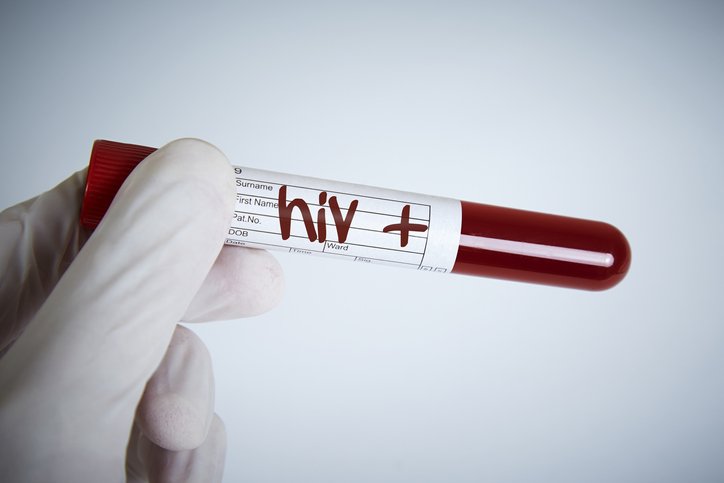The goal of PrEP is to reduce the risk of HIV infection and the resulting morbidity, mortality and costs
Human immunodeficiency virus (HIV) is spread through body fluids, such as blood, semen, vaginal and rectal fluids, and breast milk. The infection is transmitted by sexual intercourse, blood-to-blood contact and from mothers to babies. The virus depletes the CD4 cells of the immune system leaving the patient vulnerable to other infections. The final stages of HIV infection occur when the immune system is no longer able to prevent opportunistic infections. The patient is then described as having developed acquired immunodeficiency syndrome (AIDS).
Approximately 9,000 cases of HIV have been recorded in Ireland by the Health Protection Surveillance Centre (HPSC) since the early 1980s with 536 notifications made in 2019. Although no effective cure for HIV has been developed, the treatment of the virus has made significant advances in the last few decades. In the mid-1990s those who were diagnosed with HIV would have progressed to AIDS in a few years. Now those diagnosed with HIV may live almost as long as someone without the disease as a result of treatment with anti-retroviral drugs. The latest progress in the fight against HIV takes the form of preventative treatment – HIV pre-exposure prophylaxis (HIV/PrEP).
PrEP usage
PrEP for HIV is a combination tablet containing tenofovir disoproxil 245mg and emtricitabine 200mg. It is available in the original or generic form. PrEP is recommended for those individuals at high risk of HIV infection, including those who have sex without a condom and those who share needles or equipment to inject or use drugs. Individuals may also be at a higher risk of HIV if their sexual partner is HIV positive with a detectable viral load, if they have recently had a sexually transmitted infection (STI) or are using recreational drugs (eg, crystal meth, mephedrone) for sex (also known as ChemSex). PrEP is usually not necessary if the individual’s partner has HIV, but is undergoing ongoing anti-retroviral treatment and has an undetectable viral load (U=U).
The goal of PrEP is to reduce the risk of HIV infection and the resulting morbidity, mortality and costs that can accompany the infection. The treatment has been shown to be highly effective at reducing the risk of HIV transmission if it is taken correctly. Studies have shown that when taken correctly PrEP can reduce the risk of HIV transmitted via sex by about 99 per cent, and the risk from injecting drugs by about 74 per cent when taken consistently. PrEP does not protect against other STIs, such as syphilis, chlamydia, and gonorrhoea.
Before starting PrEP
There are several tests that must be carried out before a person is started on PrEP. These include:
- A fourth generation HIV test – PrEP is not appropriate for those who already have HIV, and patients who have been directly exposed to HIV must be treated with post-exposure prophylaxis (PEP). If PrEP is taken by a HIV-positive patient, drug resistance can develop. Therefore, before PrEP is started, a HIV negative status must be confirmed. A fourth generation test can detect if a person has been infected with HIV four weeks after exposure and uses both antibodies and p24 antigens from blood samples. Third generation tests have a greater window of exposure of approximately three months. These tests use HIV antibody-only detection. Most current rapid HIV tests are third generation tests and they include self-testing kits. Those wishing to start PrEP should have a fourth generation HIV test performed. Patients should be advised to report any flu-like illness (tiredness, fever, muscle aches, headache) four weeks before starting PrEP, as this could be an indication of HIV infection.
- Test for hepatitis B – hepatitis B status must be confirmed before starting PrEP. There is a risk of severe acute exacerbation of hepatitis when individuals with hepatitis B infection stop taking PrEP. Those who have infected with the hepatitis B virus (HBV) must be closely monitored for several months when PrEP is discontinued. Those who are not infected with HBV should be offered vaccination. For those who have been previously vaccinated, a booster may be required.
- Renal function tests – although not a common adverse effect, PrEP medication can cause renal dysfunction and in rare cases, renal failure. Creatinine clearance should be checked before commencing therapy. Throughout treatment renal function (creatinine clearance and serum phosphate) should be assessed regularly (after two-to-four weeks of treatment, after three months of treatment, and every three-to-six months thereafter in patients without renal risk factors.)
- Test for other STIs – other STIs, such as syphilis, chlamydia, and gonorrhoea should be tested for as these infections can make it easier to be infected with HIV.
- Pregnancy test – If there is a chance that the patient may be pregnant they should have a pregnancy test before starting PrEP.
Dosing regimens
PrEP needs to be present in the body at the highest concentrations at the time when HIV exposure occurs. There are two possible regimens for PrEP – daily dosing or event based dosing (EBD).
Daily PrEP – one tablet is taken daily. It is preferable for it to be taken with food. For PrEP to be effective adherence to therapy is essential. When commencing PrEP therapy drug levels must be high enough to prevent infection. To ensure this:
• For anal sex, at least two tablets must be taken 24 hours before sex and one tablet taken daily thereafter.
• For vaginal sex, PrEP must be taken for seven days before sex and one tablet taken daily thereafter.
Patients should be advised that missing doses of the drug can increase their chances of becoming infected with HIV. If a dose is missed within 12 hours of the time it is usually taken, the dose should be taken straight away and the next dose at the usual time. If the tablet is taken over 12 hours from the usual time, the dose should be disregarded and the next dose taken at its usual time.
EBD – this regimen is only suitable for anal sex, not vaginal sex. Two tablets are taken two-to-24 hours before anal sex and a single tablet taken at 24 and 48 hours following sex. Although less studies have been carried out on this dosing regimen, the iPERGAY study has shown this as an effective method of protection from HIV. EBD is an option for people who: Do not want to take PrEP all the time; only occasionally have sex without condoms; can plan for sex in advance.
Most current rapid HIV tests are third generation tests and they include self-testing kits
Adverse effects
Emtricitabine/tenofovir is generally well-tolerated. Commonly reported adverse effects include headache, diarrhoea and nausea. These usually subside after a few weeks of taking the medication. More seriously, renal failure, renal impairment and elevated creatinine have been reported following used of PrEP. For this reason carefully monitoring is required. The effects have been shown to reverse when the medication is stopped. Those over 40 years are most likely to be affected. Concurrent administration with nephrotoxic drugs should be avoided. There have been some reports of reduced bone mineral density by 1-to-2 per cent in uninfected individuals receiving PrEP. This adverse effect has also been shown to reverse when PrEP is stopped.
Advice for those taking PrEP
Individuals taking PrEP should be counselled on the following:
• The dose of PrEP, which in most cases will be one tablet once daily, to be taken at roughly the same time each day.
• The importance of adherence to the medication – this has been demonstrated by measurable drugs levels in the blood. Even though this education piece will most likely be delivered by the prescriber on initiation of PrEP, it is advised that the importance of adherence is highlighted with each dispensing of the medication.
• Advise the patient on what to do if a dose is missed.
• Advise the patient what to do if they vomit – if vomiting occurs less than one hour after taking PrEP they should take another tablet. A second tablet is not required if they vomit more than one hour after taking PrEP.
Although PrEP has been shown to be highly effective if taken correctly, patients are recommended to also use a condom during sex. This not only reduces the risk of HIV infection further, but also protects against other STIs. Full screening for STIs should be carried out every three months. Individuals should be encouraged to find out the HIV status of their partners.
Patients should be reminded about the importance of ongoing monitoring whilst taking PrEP. Testing for HIV and STIs is carried out every three months. Renal function and testing for hepatitis C may be carried out every six-to-12 months.
PrEP in pregnancy
If asked about taking PrEP during pregnancy, advise that there is limited information available for taking PrEP during pregnancy. However, there has been no indication of PrEP-related complications in pregnancy to date. For a pregnant woman whose risk of HIV infection is high and therefore has potential to pass the virus to the foetus, it may be appropriate to take PrEP. A risk assessment would have to be carried out by the prescriber and an informed decision made by the individual before taking PrEP during pregnancy.
Reimbursement
Since November 2019, PrEP has been reimbursed by the HSE for people who are considered to be at substantial risk of contracting HIV through sex and who meet the clinical eligibility criteria. PrEP is thus available free of charge in Ireland to those who are prescribed the treatment by clinicians on the approved list of sexual healthcare clinics, which can be viewed at: www.sexualwellbeing.ie/sexual-health/prep/where-to-get-prep/. (Many public PrEP services are facing service restrictions due to Covid-19. This may result in longer waiting times for new appointments).
References on request
Further information can be found at: www.sexualwellbeing.ie and www.hivireland.ie













Leave a Reply
You must be logged in to post a comment.